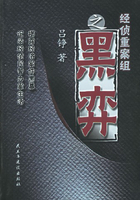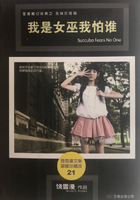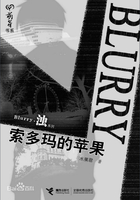It seemed plain to Brant that the dispatch-box had been conveyed here and opened for security on this desk, and in the hurry of examining the papers the flower had been jostled and the fallen grains of pollen overlooked by the spy. There were one or two freckles of red on the desk, which made this accident appear the more probable. But he was equally struck by another circumstance.
The desk stood immediately before the window. As he glanced mechanically from it, he was surprised to see that it commanded an extensive view of the slope below the eminence on which the house stood, even beyond his furthest line of pickets. The vase of flowers, each of which was nearly as large as a magnolia blossom, and striking in color, occupied a central position before it, and no doubt could be quite distinctly seen from a distance. From this circumstance he could not resist the strong impression that this fateful and extraordinary blossom, carried by Miss Faulkner and the mulatto, and so strikingly "in evidence" at the window, was in some way a signal. Obeying an impulse which he was conscious had a half superstitious foundation, he carefully lifted the vase from its position before the window, and placed it on a side table. Then he cautiously slipped from the room.
But he could not easily shake off the perplexity which the occurrence had caused, although he was satisfied that it was fraught with no military or strategic danger to his command, and that the unknown spy had obtained no information whatever. Yet he was forced to admit to himself that he was more concerned in his attempts to justify the conduct of Miss Faulkner with this later revelation. It was quite possible that the dispatch-box had been purloined by some one else during her absence from the house, as the presence of the mulatto servant in his room would have been less suspicious than hers. There was really little evidence to connect Miss Faulkner with the actual outrage,--rather might not the real spy have taken advantage of her visit here, to throw suspicion upon her? He remembered her singular manner,--the strange inconsistency with which she had forced this flower upon him. She would hardly have done so had she been conscious of its having so serious an import. Yet, what was the secret of her manifest agitation? A sudden inspiration flashed across his mind; a smile came upon his lips. She was in love! The enemy's line contained some sighing Strephon of a young subaltern with whom she was in communication, and for whom she had undertaken this quest.
The flower was their language of correspondence, no doubt. It explained also the young girl's animosity against the younger officers,--his adversaries; against himself,--their commander. He had previously wondered why, if she were indeed a spy, she had not chosen, upon some equally specious order from Washington, the headquarters of the division commander, whose secrets were more valuable. This was explained by the fact that she was nearer the lines and her lover in her present abode. He had no idea that he was making excuses for her,--he believed himself only just. The recollection of what she had said of the power of love, albeit it had hurt him cruelly at the time, was now clearer to him, and even seemed to mitigate her offense. She would be here but a day or two longer; he could afford to wait without interrogating her.
But as to the real intruder, spy or thief,--that was another affair, and quickly settled. He gave an order to the officer of the day peremptorily forbidding the entrance of alien servants or slaves within the precincts of the headquarters. Any one thus trespassing was to be brought before him. The officer looked surprised, he even fancied disappointed. The graces of the mulatto woman's figure had evidently not been thrown away upon his subalterns.
An hour or two later, when he was mounting his horse for a round of inspection, he was surprised to see Miss Faulkner, accompanied by the mulatto woman, running hurriedly to the house. He had forgotten his late order until he saw the latter halted by the sentries, but the young girl came flying on, regardless of her companion. Her skirt was held in one hand, her straw hat had fallen back in her flight, and was caught only by a ribbon around her swelling throat, and her loosened hair lay in a black rippled loop on one shoulder. For an instant Brant thought that she was seeking him in indignation at his order, but a second look at her set face, eager eyes, and parted scarlet lips, showed him that she had not even noticed him in the concentration of her purpose. She swept by him into the hall, he heard the swish of her skirt and rapid feet on the stairs,--she was gone. What had happened, or was this another of her moods?
But he was called to himself by the apparition of a corporal standing before him, with the mulatto woman,--the first capture under his order. She was tall, well-formed, but unmistakably showing the negro type, even in her small features. Her black eyes were excited, but unintelligent; her manner dogged, but with the obstinacy of half-conscious stupidity. Brant felt not only disappointed, but had a singular impression that she was not the same woman that he had first seen. Yet there was the tall, graceful figure, the dark profile, and the turbaned head that he had once followed down the passage by his room.
Her story was as stupidly simple. She had known "Missy" from a chile! She had just traipsed over to see her that afternoon; they were walking together when the sojers stopped her. She had never been stopped before, even by "the patter rollers."* Her old massa (Manly) had gib leaf to go see Miss Tilly, and hadn't said nuffin about no "orders."
* i. e., patrols,--a civic home-guard in the South that kept surveillance of slaves.















